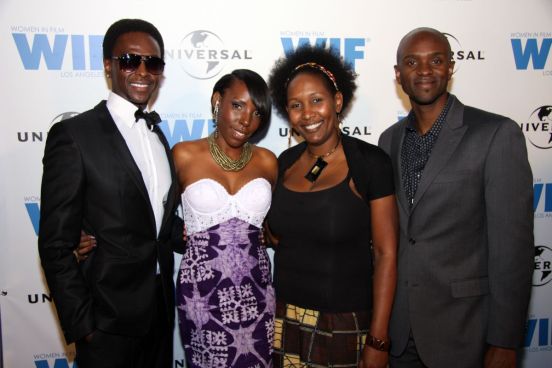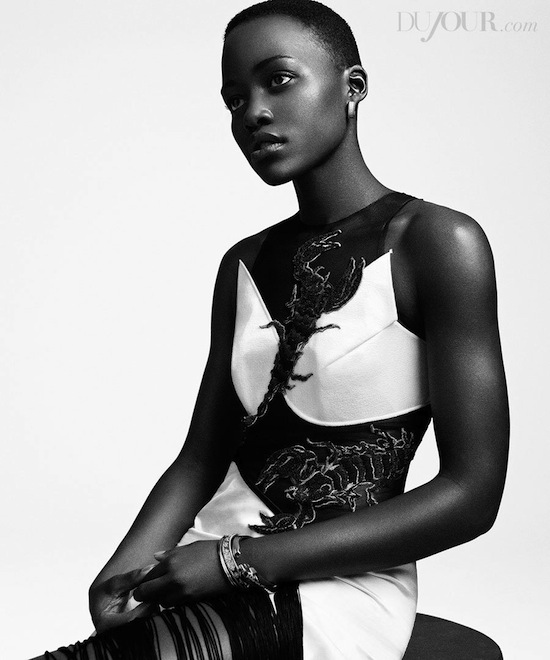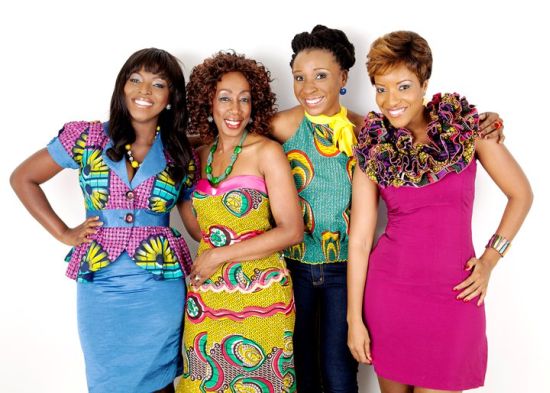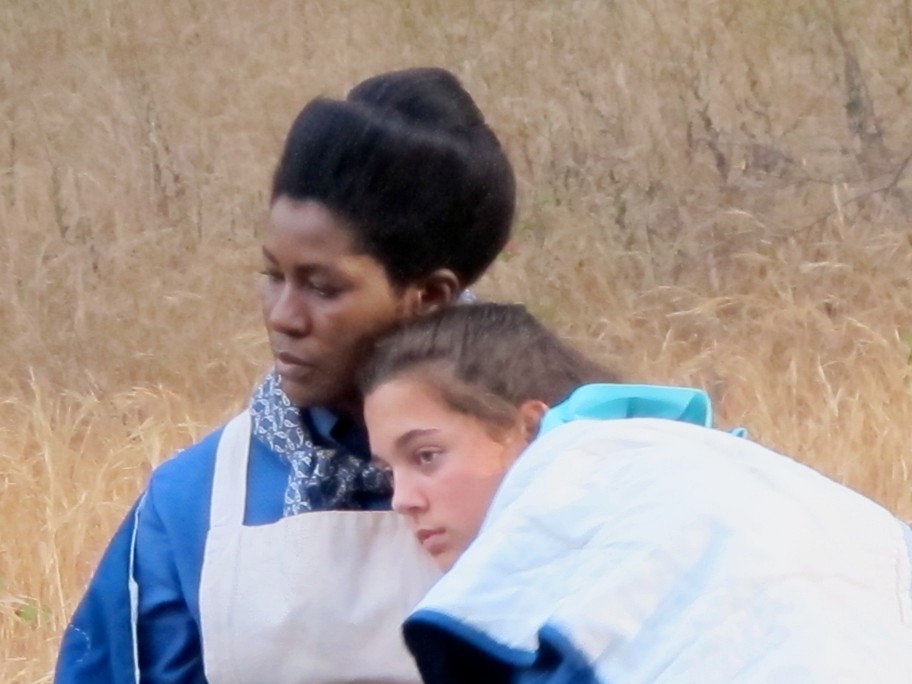 The Women in Film (WIF) International Committee hosted its 5th Annual Short Series: “Out of Africa: A night to celebrate Kenyan Film and Culture,” and it was nothing short of a spectacular night.
The Women in Film (WIF) International Committee hosted its 5th Annual Short Series: “Out of Africa: A night to celebrate Kenyan Film and Culture,” and it was nothing short of a spectacular night.
Three nights prior to the official global celebration of women via International Women’s Day, Kenyans, Americans and other Africans gathered at Universal Studios Stage 27 in Los Angeles to celebrate the remarkable contributions of Kenyan women in film.
The event began with a press check in at about 4pm. As the evening progressed, the talented hosts for the evening Actors Edi Gathegi and Ida Onyango made their appearance. While they were whisked away to prepare for the evening’s main event, guests enjoyed a beautiful ambience with beautiful Kenyan art hanging on the walls of the very large room; most of the artwork painted by fashion designer and artist Wawi Amasha. Other artists included Wangechi Mutu, Jesse Allen, Ngene Mwaura and Rachael Wangui. There were vendor booths selling Kenya accessories and art. Two tables on adjacent side of the room was filled with assorted and savory Kenyan cuisine. Kenyan cuisine has many dishes reminiscence of Indian cuisine. Guests enjoyed chapattis, samosa, mandaazi and pilau, among many delicacies. Drinks for the evening was on the house and VIP guests also had a gift bag which included some MAC cosmetics and Kenya tourist information to walk home with.
Right outside the entrance of Universal Studios stage 27, distinguished guests for the night made their way onto the green carpet and posed for photos with the paparazzi. Inside the event room, media including The Africa Channel conducted interviews. The Africa Channel hosts included the gorgeous Comedian and TV personality Eno Inwek. Inwek was dressed in a floor length modern Ankara dress and accessorized incorporating a lot of African inspired pieces.
A little after 7:00pm, the event officially began. Women/models danced onto the stage in designer Amasha’s ‘Mama Afrika’ designs. Also dancing on stage with them was a Massai man. As part of the performance, there was almost like a call and answer Massai sound that took place. Looking into the crowd, I could not help but notice the diverse audience consisting mostly of White Americans, Asians and Africans. As the dance/model group exited the stage, Wanjiru Njendu, the lead event organizer and WIF representative stepped on stage to welcome the audience. She thanked all for their support and also mentioned the space was donated by Universal Studios.
Right after Wanjiru, the duo hosts/actors Edi Gathegi and Ida Onyango were ready to perform for the night. Ida looked beautiful in a strapless dress with a bodice and a purple and white print bottom. Gathegi matched Onyango’s dressing with his equally sharp suit. Both welcomed the audience. Gathegi spoke of Kenya as a country the audience should visit. It had over “42 different tribes, a colorful regalia, dignified and proud people.” He boasted of the country’s wild life from “Lions (to) Leopadd’s Cheetahs (and) Buffalos.” He finished off his introduction with, “Kenya in a phrase, “Hakuna Matata.”” The audience responded in laughter. Both hosts were very articulate and eloquent. At the conclusion of their introduction, Gathegi said, “Karibu” which means welcome in Swahili. An audience shouted back “Sana” in response.
The stage was set and warmed up to receive its main guest for the evening, Professor Ngũgĩ wa Thiong’o. In introducing the Professor, the hosts told a compelling story of the Professor’s life. His nomination for a Noble Prize in Literature, his imprisonment by the Kenyan government, his subsequent amnesty and release, and his work in the USA as a Professor at Yale and New York University and now the University of California Irvine. The audience responded with a showing of profound respect for the Professor through a hearty applause.
“What we are seeing here is a new dawn of Kenya Cinema,” said Professor Thiong’o. “And a dawn of women in cinema as well,” he added. The professor continued with remarks on the work of Kenya filmmaker Wanjiru Kinyanjui who he said was “kinda of a pioneer in women cinema.” He praised Kenya women saying, “Kenyan women have played a decisive role in every aspect of Kenyan history.” He informed the audience women were more than half of the population. He gave tribute to his now deceased mother and how instrumental she was in shaping his love for literature. His mother made him promise that “neither hunger nor hardship would keep him away from (obtaining) an education,” he narrated to the very attentive audience. Finally, in his closing remarks, he left the audience with a powerful quote as to the importance of women telling their own stories. “Until the lioness begins to tell her story, the tale of the hunt will always glorify the hunter.”
The audience appreciated his speech and this time responded with a standing ovation. It was finally time to transition into watching the films made by these remarkable Kenyan women filmmakers.
The first film up was Subira by Ravneet “Sippy” Chadha. One theme that remained consistent for all the films shown was that Kenyans are extremely creative. They do not compromise the integrity of their culture or their essence; yet they are able to tell universal stories that connect with anyone, regardless of race, religion, gender or nationality. Subira set the pace for which all films that showed at the event followed.
Subira an eleven year old hails from an orthodox Muslim home in the island of Lamu, Kenya. Her mother is a tyrant and insists she follow the tradition and learn household chores to become a good wife. She has other plans and a grandmother who also encourages her to be her own self, even at such young age.
Next was the film Picha Mtaani by co-directors Toni Kamau and Christine Kinyanjul which told a sad tale of the reality of a Kenyan election that went very wrong. The blood bath that occurred as a result of Kenyans killing each other was a story the filmmakers did not ever want Kenyans to ever forget, lest the past is repeated. It was compelling.
Just as compelling was the short film Kibera Kid (www.kiberathkid.com) by Director Nathan Collett. This might as well be Kenya’s Slum Dog Millionaire, only without the millionaire part. It was such a compelling story of a young boy born into extreme poverty trying to make the right decision on his future. Again, Kenyan filmmakers know how to tell a story and do it so well.
The fourth film shown was ‘Africa is a Woman’s Name’ by director Wanjiru Kinyanjui. If only we could make this film a required showing at every African school across the continent! The documentary profiled Njoku Ndungu, an Attorney/Advocate of the High Court of Kenya and a former nominated Member of Parliament. The film showed her narrating her challenges and success in finally getting the Kenyan government to enact the Sexual Offenses Bill now the Sexual Offenses Act 2006. The audience watched with admiration as Ndungu told her story. They also erupted in laughter as the young girls under her supervision shouted out loud their self affirmation with such attitude and conviction; when Ndungu taught them personal defense techniques, as part of her ‘Big Sister Program’ against sexual abuse.
Where Ndungu left off in showing how brilliant Africans and particularly Kenyans are, Pumzi ( www.pumzithefilm.com) by Wanuri Kahiu ran with the thought by expanding into the sci-fi film world. Most of the audience appeared to be on the edge of their seats anticipating what was next. “It was so interesting,” said an African-American guest to me when I inquired about her thoughts, in behalf of Ladybrille Magazine, after watching Pumzi. In Pumzi, “nature is extinct. The outside is dead. Asha lives and works as a museum curator in one of the indoor communities set up by the Maitu Council. When she receives a box in the mail containing soil, she plants an old seed in it and the seed starts to germinate instantly. Asha appeals to the Council to grant her permission to investigate the possibility of life on the outside but the Council denies her exit visa. Asha breaks out of the inside community to go into the dead and derelict outside to plant the growing seedling and possibly find life on the outside.” It is a must watch.
Coming at number six of the seven short films shown was The Knife Grinder’s Tale (www.theknifegrinderstale.com) by R.L Hooker, Producer –Chiara Paglieri. A really nice tale if you ask me. Across the continent, there is now an obsession with technology devices so much so people resort to stealing and in this very sad case, killing. When a father goes to investigate the cause of death of his son, he finds the same fate. The answer lies in his cellphone. Sad tale.
Finally, Taharuki (www.taharukithefilm.com) by Director Ekwa Msanhi-Omari closed out the shortfilms for the night. “Set against the backdrop of the start of the devastating post-election violence that took place in Kenya in 2007/2008 and has left tens of thousands of Kenyans homeless, traumatized or dead, Taharuki (Suspense) is the fictional account of a man and woman from opposing ethnic tribes who’re working for an underground liberation movement to expose a child-trafficking cartel when something goes wrong, and they’re forced to make tough choices in order to stay alive and complete their mission. Time is running out, lives are at stake, and every second counts. What they choose could change the course of history.”
The organizers gave an intermission during the showing of the short films with a coffee break for all. After the event, a Q & A took place with the filmmakers. I walked away from the event thinking, “if this is the quality of films made by and produced by Africans, African cinema will know no limits.” I also wondered why East Africans could produce such quality films with a clear and unapologetic sense of identity while West Africa, especially Nollywood and Gollywood, wasted so much time trying to emulate the West with nothing short of crappy and silly narratives that do nothing to capture the richness and history of West Africa. Granted there are a few exceptions to the rule; but Kenya has raised the bar and African filmmakers in West Africa should be emulating their colleagues in Kenya.
~Uduak Oduok
~Courtesy photo/See Pictures from event here.
L-R: Edi Gathegi, Ida Onyango, Wanjiru Njendu, Owiso Odera
Founded in 2007, Ladybrille® Magazine is a California based pioneer digital publication demystifying the image of Africans in the west through contemporary African fashion and celebrating the brilliant woman in business and leadership, with an emphasis on the African woman in the diaspora. Our coverage includes stories on capital, access to markets, expertise, hiring and retention, sales, marketing, and promotions.





